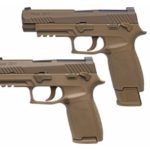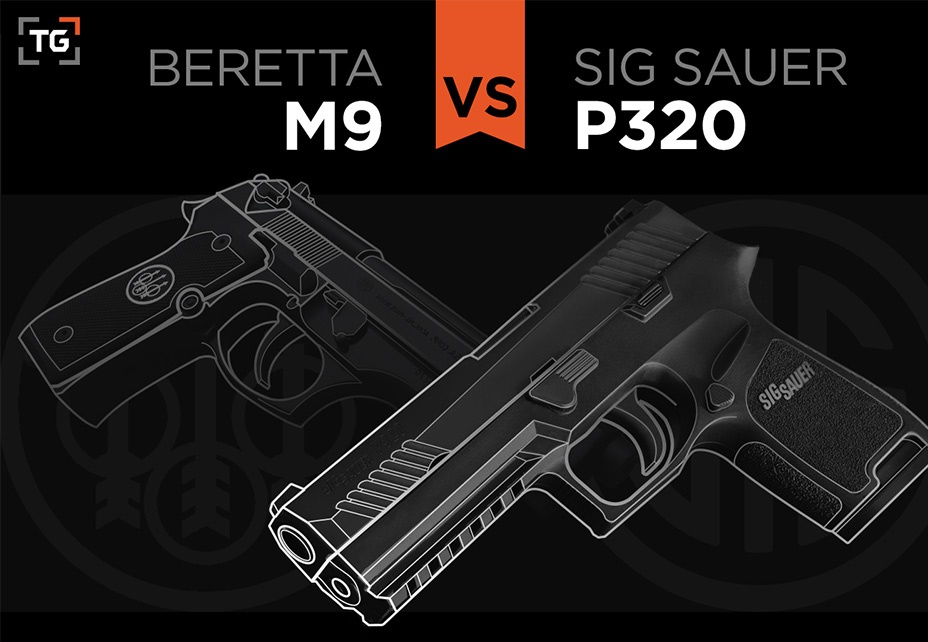En este artículo se detalla la comparación entre la Beretta M9 (utilizada por el ejercito estadounidense) y la pistola que pasará a reemplazarla: Sig Sauer P320:
This comparative image highlights many of the differences between the actual pistol that is being used by the United States Army, and the Sig Sauer, wich will replace it. It includes firing mechanism (stryker-fired vs. hammer-fired), capacity (17 or 21 rounds vs. 15 rounds) and frame type (polymer vs. steel), among other areas. It’s not exactly a fair comparison because the M9 dates to the Cold War while the P320 came out in 2014. A more accurate comparison — at least for the purposes of analyzing the pistol choices before the Army in the Modular Handgun System, or MHS, program — might have been using Beretta’s M9A3, an upgraded version the company submitted to the service for the acquisition effort. Note that the Sig used in the graphic is the commercial full-size model — not the pistol the Army selected as the full-size MHS.
Still, the side-by-side is noteworthy and highlights the evolution in small arms technology over the past few decades. The MHS program, meanwhile, continues despite a protest by Glock, which submitted its Glock 17 and Glock 19 models for consideration.
Why Modularity Matters:
- It’s easier to replace broken parts
- Smaller grips are important as more women enter the military
- The firearm can adapt to special assignments
5 things you should know about the Modular Handgun System competition:
- The Army held the contest after pressure to replace aging weapons and concerns about the weight and reliability of the M9.
- The competition started in 2011 and received criticism for taking almost a decade to pick a winner.
- In addition to the pistol, entrants were required to submit a regular and a special-purpose round, which suggests the Army is considering using more powerful rounds. This would address complaints about the 9mm NATO being ineffective in combat.
- The Army ordered the full-size and compact pistols chambered for 9mm NATO rounds and excluded the other part options Sig Sauer offers with the P320 model.
- Beretta submitted the M9A3, an updated version of the M9, before the MHS competition to try to maintain its contract, but it was rejected. Beretta submitted a new APX striker-fire pistol in the competition instead.
Contract Details:
- 10-year contract (through 1/19/2027)
- Estimated cost is $580,217,000
- Manufactured in New Hampshire
- Included in the contract: pistols, cleaning kits, magazines and training equipment

